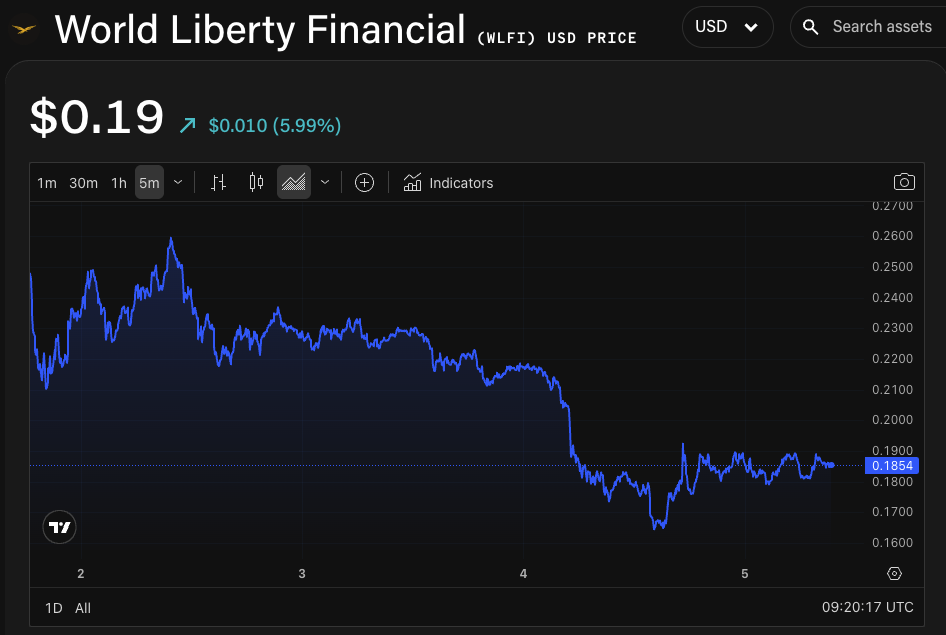Justin Sun’s Concerns Over WLFI Token Blacklisting: A Call for Fairness in DeFi
In a dramatic turn of events, Justin Sun, founder of Tron and a significant early investor in the World Liberty Financial (WLFI) project, took to social media to express his discontent regarding the blacklisting of his crypto wallet. This incident has left the crypto community abuzz, especially as it raises critical questions about investor rights and the principles underpinning decentralized finance (DeFi). In his heartfelt plea, Sun requested the release of his WLFI tokens, citing his prior contributions and trust in the project, and emphasized the need for fairness and transparency in the rapidly evolving crypto space.
The Perspective of an Influential Investor
Sun’s statement on X (formerly Twitter) highlighted his deep emotional investment in the WLFI project. "I have contributed not only capital but also my trust and support for the future of this project," he declared. He asserted that his tokens, equivalent to around $9 million, were unfairly frozen, arguing that he deserves the same rights as all other investors. Sun underscored the sanctity of blockchain technology, describing tokens as "sacred and inviolable," integral to creating a financial ecosystem grounded in fairness.
The Blacklisting Incident: Context and Implications
The controversy escalated after World Liberty Financial blacklisted an address associated with Sun, effectively restricting his ability to transfer or govern his WLFI tokens. This dramatic intervention occurred shortly after Sun transferred a substantial amount of WLFI to an address linked to HTX, a crypto exchange. This transfer prompted community speculation and stretched the bounds of investor confidence. As the project remains silent on the reasoning behind its actions, concerns grow regarding the transparency of governance in DeFi initiatives.
Crypto Community Reactions: Trust and Accountability
The ramifications of this incident rippled through the crypto community. While some supporters rallied behind Sun, others expressed skepticism about the nature of his transactions. A community member even suggested that Sun may have had an agreement with the Trumps not to sell his tokens, sowing distrust among investors. These sentiments illustrate the fragile nature of investor confidence in projects that are supposed to operate under the principles of transparency and fairness.
Market Reaction: The WLFI Token’s Volatility
The blacklisting incident was compounded by a notable price drop in WLFI tokens, which saw a decline of approximately 24% shortly after the news broke. While some attributed this decline to Sun’s transfer, others pointed to broader market dynamics impacting exchange deposit flows. As the price of WLFI fluctuated, concerns mounted over how such internal governance decisions could impact investor sentiment and market stability. This situation serves as a cautionary tale for DeFi projects regarding the potential fallout from unilateral actions that affect investor assets.
Building a Trustworthy Ecosystem: Sun’s Appeal
In light of these events, Sun’s call for maintaining principles of fairness, transparency, and trust in World Liberty Financial has never been more crucial. He firmly believes that a successful financial brand should be built on these foundational values rather than on arbitrary measures that freeze investor assets. The future of the WLFI project hinges on its ability to address such disputes, ensuring investors feel secure in their contributions and encouraging growth within the ecosystem.
The Road Ahead for WLFI and Its Investors
As the turbulence surrounding this incident continues, it remains to be seen how World Liberty Financial will respond to Sun’s appeals for transparency and fairness. The situation poses broader questions about governance in DeFi, investor rights, and the accountability of projects within the ecosystem. For the crypto space to thrive, it will need to foster an environment of trust and openness where investors can feel secure in their investments. Sun’s experiences serve as a wake-up call for the entire crypto community, emphasizing the need for robust policies and practices that uphold investor rights.
In conclusion, the ongoing drama surrounding Justin Sun and the WLFI project is more than just a case of individual challenges—it encapsulates the critical issues facing the DeFi space today. As stakeholders continue to navigate these turbulent waters, the commitment to fairness, transparency, and trust will ultimately determine the future of projects like WLFI and their sustainable growth in the dynamic world of cryptocurrencies.


